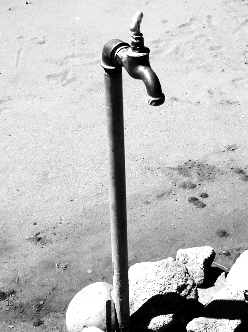Good water use to carry WA
 Western Australia’s Department of Water says population growth south of Perth will rely on smart groundwater policies.
Western Australia’s Department of Water says population growth south of Perth will rely on smart groundwater policies.
With increased climate variability on the way, water resources will have to be carefully managed.
In WA’s south-west wine and agricultural region, water saving measures are already a growing trend.
Water use in the South West region is already down by 30 per cent on 2000 levels.
WA’s principal water planner Daniel Ferguson says people are learning what is at stake.
“The discussion has been going on for so long now about climate change and a lot of people have seen it happen in front of them,” he said.
“They're aware of seasonal variation. I think the message is clear that we are in a drying climate.”
The Department of Water expects that the Yarragadee aquifer will meet demand for drinking water till 2030 “providing residential water efficiency targets of 100kl per person per year are met”, but warns that efficiency and reuse will be vital to hitting 2050 targets.
For 2050 and beyond, the department has used global circulation models to predict rainfall and temperature in the South West.
“What we have seen over the past 15 years is a reduction of about 15 per cent across the region in rainfall [and] we expect a similar trend to continue.” Mr Ferguson said.
“We use three scenarios: wet, dry and medium. Even our wet scenario is dryer than what we have currently.
“What we're seeing now is a new normal for the region.”
Environmental historian Ruth Morgan said in a recent interview with ABC radio that WA communities are actually quite accepting of reused water.
“Ground water was an amazing resource that saved Perth and the surrounding areas from really feeling the brunt of what we now know is a drying climate,” said Ms Morgan, the author of ‘Running Out? Water in Western Australia’.
“In Perth, it's remarkable how much we haven't questioned desalination and now water recycling,” she said.
In stark contrast, when the idea of introducing recycled water was raised in Toowoomba in Queensland, “the whole idea got shut down really quickly”.
“I appreciate it's a different proposition when filtering through ground water,” Ms Morgan said.
“It's still quite remarkable that there's a consensus that it's a matter of whatever it takes to ensure that the people of Perth receive the water that they need to maintain their livelihood.”








 Print
Print